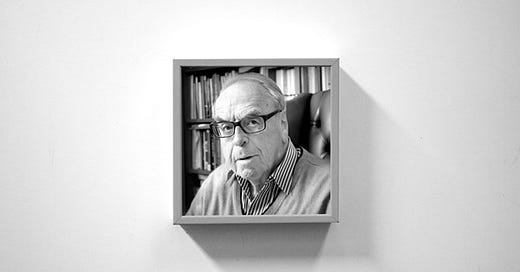Moltmann was a German Reformed theologian who was Professor Emeritus of Systematic Theology at the University of Tübingen and was known for his books such as The Theology of Hope, The Crucified God, God in Creation, and other contributions to systematic theology.
Born on April 8, 1926, in Hamburg, Germany, Moltmann's theological journey was deeply influenced by his experiences as a prisoner of war during World War II. This period of suffering and reflection led him to develop a theology centered on hope and the crucified God.
Moltmann's most influential works include Theology of Hope (1964) and The Crucified God (1972). In Theology of Hope, he presents eschatology not as a distant future but as a present reality that transforms the world through active engagement and hope. This work positioned him as a leading voice in contemporary theology, emphasizing the dynamic relationship between faith and the future.
In The Crucified God, Moltmann explores the profound implications of Jesus' crucifixion for understanding God and human suffering. He argues that God identifies with human suffering through the crucifixion, offering a powerful theological framework for addressing issues of pain and injustice.
Moltmann's contributions extend beyond these seminal works. He has written extensively on the Holy Spirit, the Trinity, and the church, consistently advocating for a theology that is both transformative and rooted in believers' lived experiences. His innovative approach has inspired theologians worldwide, making him a pivotal figure in modern Christian thought.
Jürgen Moltmann's work remains profoundly relevant today, especially in the face of rising authoritarianism around the world. His theological perspectives provide critical insights and frameworks for addressing the challenges posed by authoritarian regimes.






Thank you. His writings are indeed very important in today’s world.